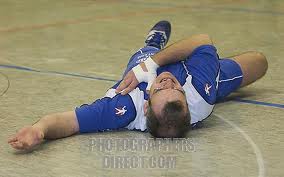
Exhaustion, injuries and shortened careers are already major concerns; what should we now expect to happen!?
For several years now, one of the hot topics in the world of handball has been the overload on the top players and the resulting burden on the top clubs. The intensive schedule at the club level is no longer seen as entirely compatible with the obligations to the national teams. Accordingly, discussions at all levels, including between the IHF and the EHF, have involved ways of eliminating or cutting back on events to make the situation more realistic.
One proposal has been to reduce the ‘big events’ from five to four in each four-year cycle. We currently have World Championships every two years and European Championships every two years. But in addition, just like in 2012, we also have the Olympic Games. So one of the ideas has been to reduce the World and Continental Championships to three each in every eight-year period. Not much progress has been made, as both the IHF and especially the EHF have wanted to protect their respective big events.
But now we suddenly have a new situation that pulls us in the opposite direction. Africa, Asia and Pan-America have had continental ‘Games’ under the auspices of the Olympic movement for a very long time. For a lot of sports, these are really major events, and they also include handball. And now we have just had the announcement from the association for European Olympic Committees (EOC) that Europe wants to join all the other continents in organizing such continental Games. Just what handball did not need, it seems. If nothing else were to change, we would then move from five to six big events, rather than from five to four!
The first European Games will be held in June of 2015 in Azerbaijan, a country that has made noises in recent years about wanting to host the Olympic Games. One might think that this really would cause major concern among European clubs, federations and the EHF. But the reality is of course that once such an event comes into existence, it is almost unthinkable for a major sport to indicate that they do not want to take part. And for many sports, particularly most of the individual sports, the situation is very different from that of handball. Here the athletes are typically not under the pressure of overload, especially as the participants in individual sports are freer to dictate their own overall schedule.
So it is understandable that the official reaction from the EHF is cautiously positive. President Brihault has indicated that European handball and its various stakeholders support participation, and there are no specific comments about negative aspects. It seems that handball would prefer to take part from the outset and then perhaps evaluate both the benefits and status of this new event and the practical impact for handball and its top players. There has, however, been some speculation in the media that, perhaps, it would be better for handball to turn it into an ‘under-23’ or ‘under-21’ competition, although there must be doubts about the willingness on the part of the EOC to accept that approach.
The experience in the other continents does not provide much guidance. Here the existence of the continental Games every four years has rarely been an issue in terms of overload for handball players. The reality is that the proportion of players on the top national teams in those countries who also play for an elite club team, meaning in Europe, is much smaller, so there is not a serious conflict. Instead, because of the varying timing of the continental Games, the concern has more been one of securing the release for players on European club teams, when the continental Games come at a time that does not really fit with the European club calendar.
It will be interesting to see how the reactions might change as we get closer to June 2015. And there is also a suspicion that the new event might become an argument or create some leverage in the IHF vs. EHF debate about a possible cut-back of the existing big events. The IHF cannot very well complain about the emergence of such an event in the only continent where it has been missing, and it is not the EHF that has caused the situation to arise. But it might create a situation where a reduction becomes more inevitable than ever, and the IHF might argue that, after adding a European event, the obvious first thing that must happen is to remove another European event.
However, it might also create a certain appearance of symmetry, with one global and one European Olympic event, together with the two World and two European Championships. Perhaps this is what would make it look natural to cut one of each of these two types of events. Because at least personally, I have a hard time seeing that it is a tenable situation to have six such events in every four-year cycle.
